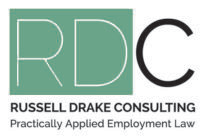With Christmas fast approaching employers are already beginning to face the dilemma as to whether some employees are entitled to payment for not working on the public holidays or not.
While it is reasonably easy to assess entitlements to payment for employees that work a regular Monday to Friday work week, it is less clear for employees who may work part time hours, have alternating roster arrangements or have irregular work patterns.
The Holidays Act 2003 states that an employee who is not required to work on the public holiday is entitled to be paid a non-worked day if the public holiday falls on a day that would be an ‘otherwise working day’ for them (section 49).
A recent case in the Employment Relations Authority assists in defining what the Holidays Act means in terms of an ‘otherwise working day”. (Unite Union and Wendco (NZ) Limited)
Wendco operates the Wendy’s Fast Food restaurants within New Zealand and traditionally does not open their stores on Christmas day. As such they argued that, as it is customary for them not to open on Christmas Day it could not be an ‘otherwise working day’ for the staff. The Authority, in their determination, disagreed with this assumption in stating that, had it not been for the fact that it was a public holiday, staff would have usually been rostered to work on the day that the public holiday fell. The Authority therefore deemed that any employees who would usually work on that day would be entitled to payment for a non-worked public holiday – with this to be paid at the employees’ relevant daily rate of pay pursuant to the provisions of the Holidays Act. Relevant Daily Pay being the amount of pay the employee could expect had they been required to work on that day.
This Determination raises some other interesting issues to be considered, including:
- If the employee is a casual and the business closes for the public holiday, could the employee be entitled to payment for a non-worked public holiday?
Yes, if the pattern of work on previous weeks indicates that the employee has regularly worked on the day of the week that the holiday is to be recognized.
- If the employee works on a roster and the public holiday falls on a day that is not a rostered day of work?
No, because of the roster pattern occurring on the week that the public holiday falls, the public holiday is not occurring on an otherwise working day for the employee (i.e., the employee would still not have been required to work that day if the public holiday was not occurring)
- If the employee works irregular hours / days each week.
Yes, if the pattern of work on previous weeks indicates that the employee has regularly worked on the day of the week that the holiday is to be recognized.
Within the Wendco case the Authority was also required to assess the length of time that may need to be reviewed prior to the public holiday occurring, with the determination appearing to confirm that this is not legislatively stated and could differ across employees depending on the frequency of their work – but probably not less than four weeks.
The other point to arise is that, if the business usually works on Monday to Friday each week, and does not close on the public holiday, is the employee required to work, do they have a right not to work or are they required to volunteer to work on that day. The answer to this might seem confusing however it is relatively straight forward. If the employees’ terms and conditions of employment state that the employees’ ordinary hours of work are from Monday to Friday (or similar) each week or they work on a shift roster arrangement, then the employee can expect to have to attend work on every Monday to Friday (or rostered day) that the business operates. If the business is required to continue to operate on a public holiday that falls on a Monday to Friday due to production or client requirements, this day would continue to be an ‘otherwise working day for the employee’ and the employee would be required to be at work on the Public Holiday.
Under these scenarios, the only reason that the employee would not be required to be at work on the public holiday would be if the employee has provided authorization for them to be on leave or they are genuinely sick on the day the public holiday falls. If this situation creates confusion for workers, we would suggest that the requirement to work on public holidays that fall on otherwise working days is clearly stated within the employment terms and conditions.
If you have any questions related to assessing the pay and leave entitlements for employees associated with public holidays, please feel free to contact us directly.

